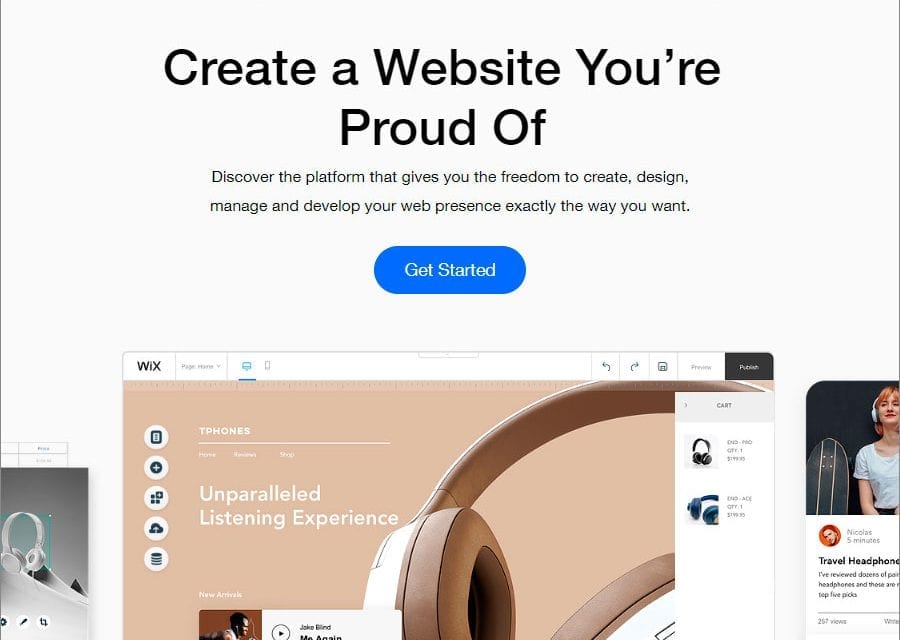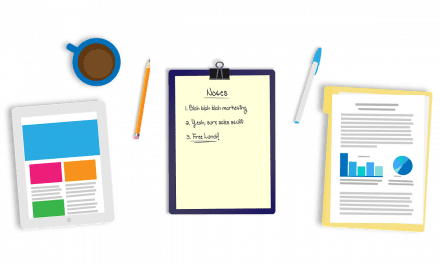Building an ecommerce website is easy.
No coding, prior experience, hosting, or security needs.
You just need the right ecommerce website builder or platform, and you are good to go.
But, choosing from the right website builders for ecommerce is tough.
This is where most people make a mistake.
No matter how good your product is, or how exceptional your sales and marketing team is, the wrong platform or builder would put everything in vain.
To make sure that doesn’t happen to you, we found the top 10 options.
Take a look:
1. Wix
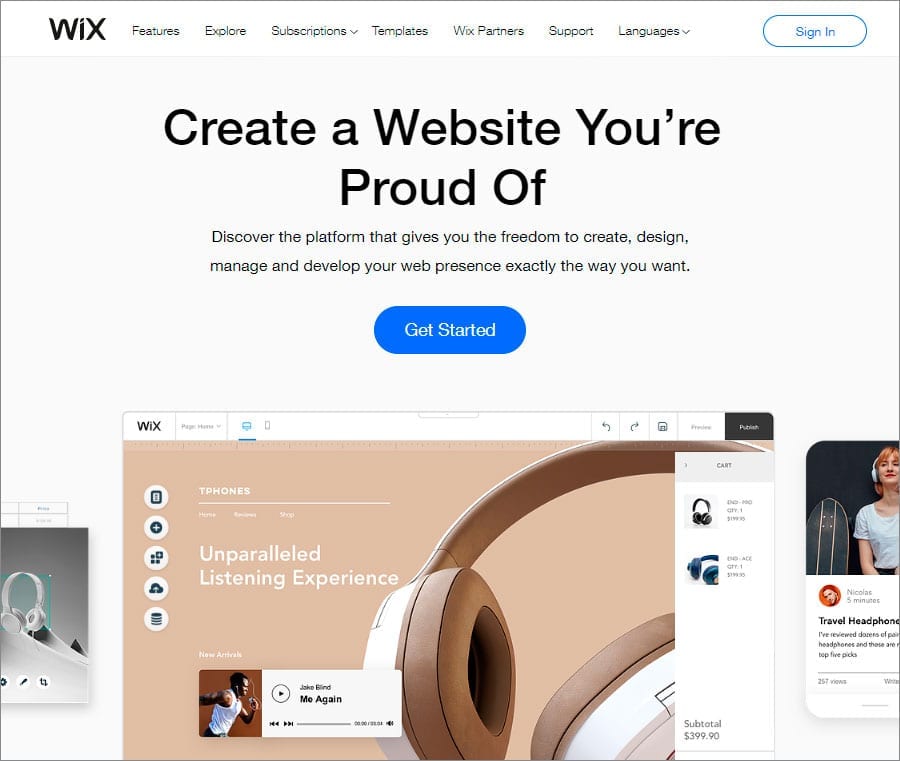
Wix is likely to be the top of every website builder list. It is simple to use, beginner-friendly, and offers a lot of creative freedom.
Among ecommerce website builders, Wix deserves mention because of its affordable costing. It is a powerful ecommerce platform with pretty much every feature that you’d need. Available in just $23 to $49 per month.
There are, however, two downsides to using Wix.
One, you cannot sell using multiple channels like Facebook, Pinterest, or Instagram.
And two, you cannot bulk upload your inventory.
2. Squarespace
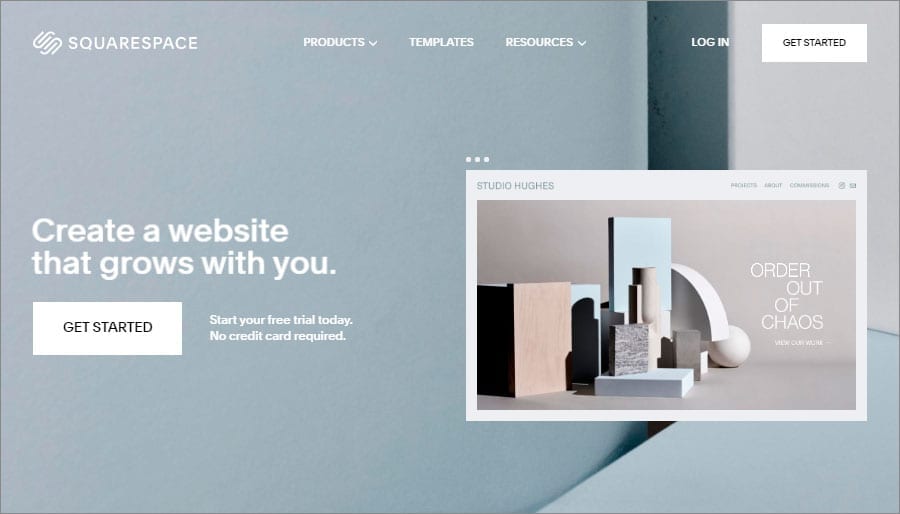
Squarespace ranks high on both functionality and ease-of-use. It has a variety of design templates that are all equally stunning. You also get the liberty to change the template later on. This facilitates rebranding, a feature that not many ecommerce website platforms offer.
Promoting your store on social media is also easy, with its robust social media integrations.
All its features are in-build. This assures you of quality, but on the other hand, restricts additions due to a lack of app market.
The cheapest plan costs just $18/month. But a significant downside is that you can only accept payments using Stripe, PayPal, or Apple Pay on your Squarespace shopping site.
3. Shopify
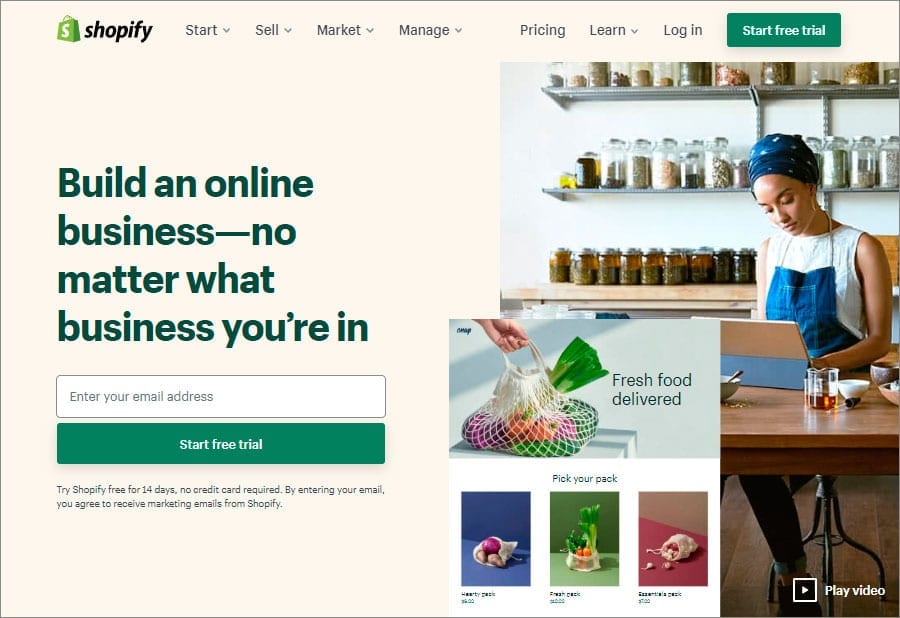
Shopify is probably the most costly ecommerce website software on this list. The highest plan of Shopify can cost you as much as $299/month. And it charges a transactional fee too if you don’t use the Shopify payment. But wait before you tag it as expensive.
It does have all the features that make it a value for money.
The Shopify inventory management system is by far the best that we have seen. Also, it has a broad app market allowing more additions that you can think of.
Being a dedicated ecommerce website builder, it has more features directed at helping you sell than any other platform. Plus, it comes with built-in dropshipping tools and multi-channel sales options.
4. Weebly
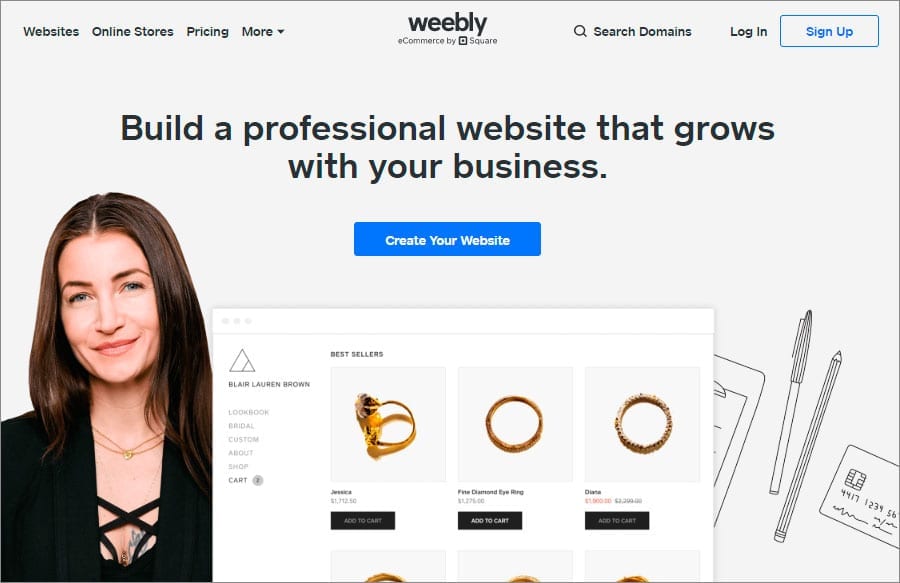
Weebly is a website builder that lets you sell even when you are using its free plan. That is a great feature to offer for free. Also, its starter plan costs just $6/month.
Also, you don’t need the time or tech skills to make use of Weebly. It is the cheapest among the best ecommerce website builders that you could find. But, if you want features like cart abandonment emails, shipping calculators, and unlimited storage, you would have to dish out more cash for the higher plans.
Weebly is most likely to fit even the tightest budgets. But it is restricting when it comes to multi-channel selling options. Also, it does not let you customize the checkout page. And this is a big bummer.
5. Square Online Store
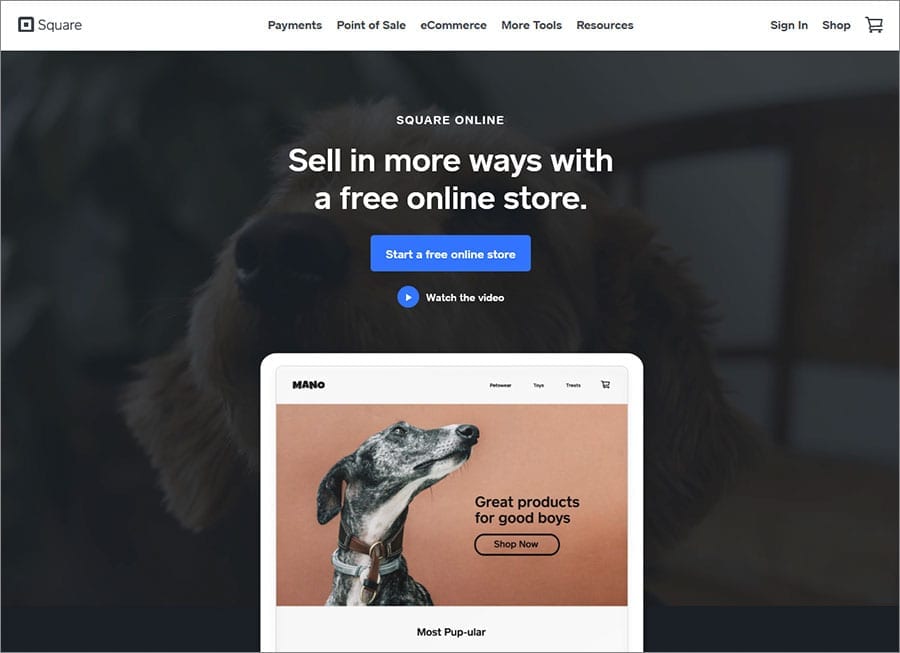
When Square bought Weebly in 2018, Square Online Store was born. This new kid on the block has the same ease of use of Weebly because it has the same base software as Weebly. But, it comes with a lot more features courtesy Square.
The AI tech feature and a free plan that lets you sell are the two things that make the Square Online Store a frontrunner in the race of becoming the best website platform for ecommerce.
However, it still suffers from the lack of customization problems that you find in Weebly. Also, larger merchants might outgrow Square Online sooner than they expect.
It offers Weebly’s features with some additions, but Weebly’s weaknesses that it inherits are quick in pulling it down.
6. BigCommerce
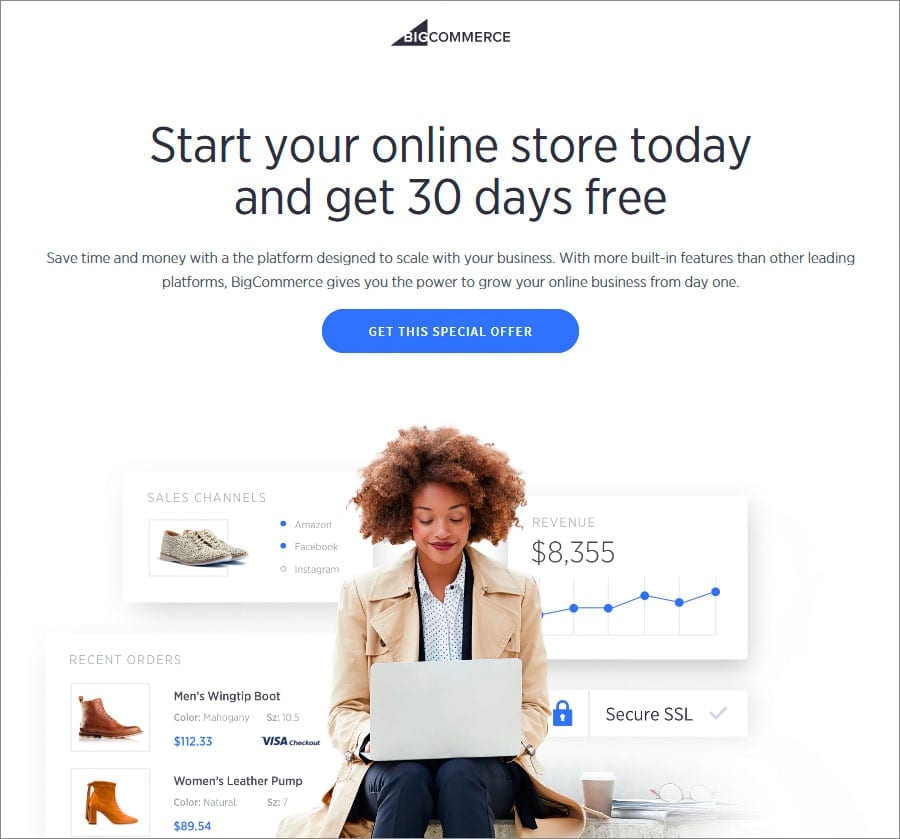
BigCommerce is the best ecommerce platform if you are looking for some advanced features. It can help you scale your business across different selling channels.
But, when BigCommerce offers you advanced features, it comes bundled with advanced tools that are tough to use for beginners. It gains points on functionality and scalability but loses it with its complicated interface and steep learning curve.
Most of its features are in-built, and you’d hardly feel the need to shop around in the app store. But, even with its lowest package that is $29.95 per month, small businesses might feel they are paying for (and getting!) more than they actually need.
7. GoDaddy
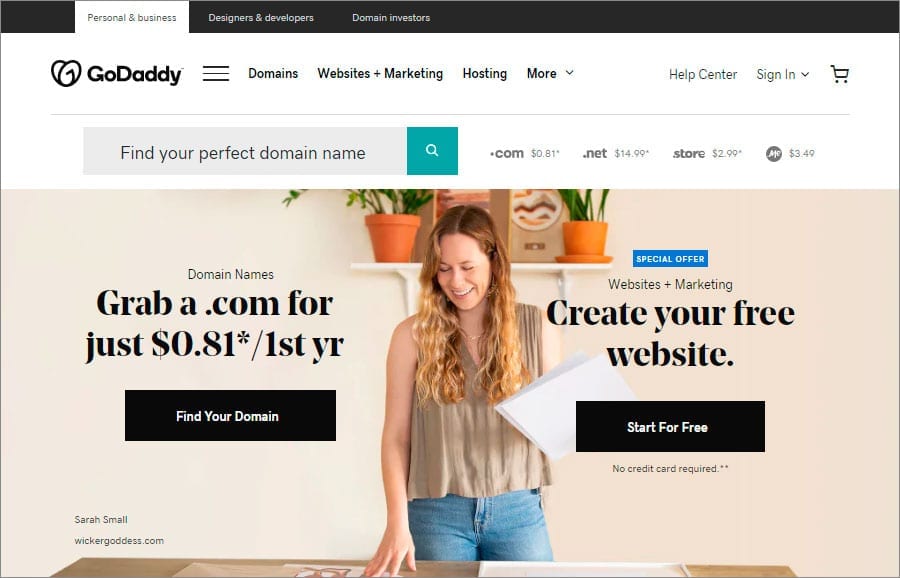
GoDaddy is the fastest ecommerce website builder. It comes with a one-month free trial and a $19.99 per month plan afterward. With the GoDaddy Artificial Design Intelligence (ADI), you can get your selling store up and running in just a couple of minutes.
You need to do hardly anything as the platform does most of the work for you. On the flip side, this also means that there is very little left for customization. You get a website built quickly, but you have to let go of your creative freedom.
Another exciting aspect of GoDaddy is that it is more supportive of several types of users (photographers, writers, and the likes too). The features could have been better, but it sure is a value for money and hands down the winner when it comes to set up speed.
8. 3Dcart
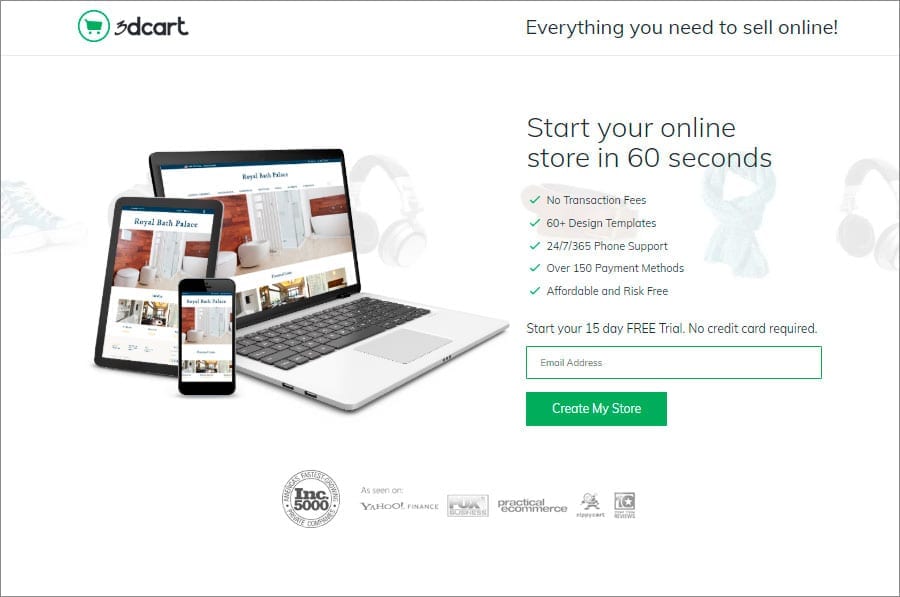
3Dcart is among those website builders that cater to a small, particular niche. If you need a website with a robust inventory management system at a cost as low as $19 per month, you can blindly go for 3Dcart.
It comes with powerful inbuilt features that reduce your dependence (and expense) on the app marketplace.
But, you will have to give up a little bit of creativity and design here. Also, it isn’t precisely an easy-to-use platform. A higher level of expertise is required to get started with 3Dcart, which most DIY-ers would struggle with.
9. Volusion
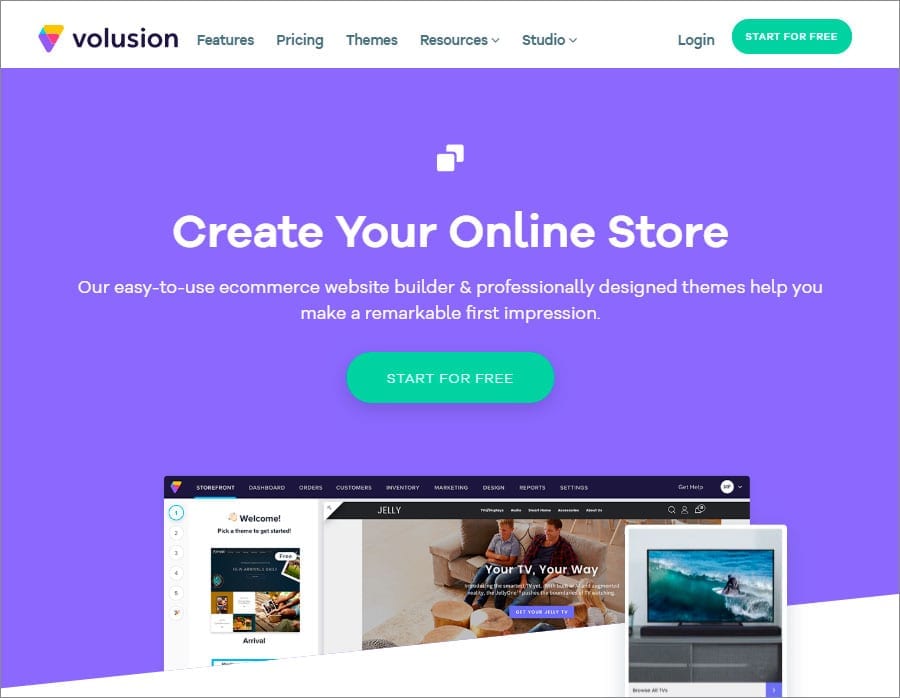
Volusion is a sort of a middle ground between Shopify and BigCommerce. Priced at $29 (same as Shopify’s lowest plan) Volusion offers sales tools as robust as that of BigCommerce.
It comes loaded with features, and the one that stands out is the data that it offers you for your ecommerce website. If you are a sucker for numbers and want data-driven reports that drive your business growth, Volusion is the one you can trust.
However, don’t expect to be an easy platform. It can take you some time to find your way and build your site with this website builder. It also lacks a blogging option.
10. Big Cartel
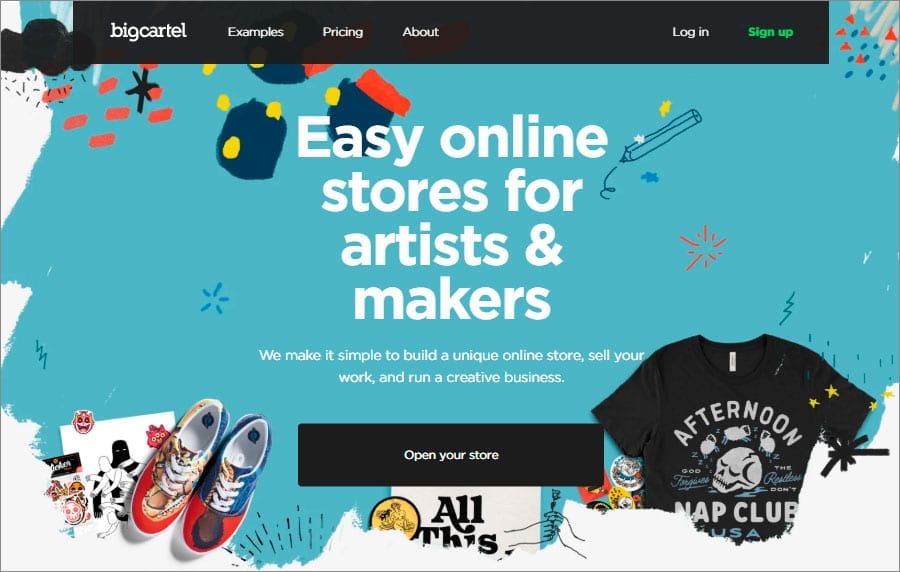
Big Cartel is an ideal pick for those who want shopping websites to sell a small number of unique items. If you are starting small and want to stay that way, Big Cartel is a great choice.
It does not overwhelm you with features that you don’t need or choices that you don’t want to be bothered with.
Big Cartel has limited tools, minimum design options, and is simple to start with. Also, its free plan that lets you sell is a significant upside. But, if you want to keep using it, coding know-how would be needed.
And if you plan to grow your business later, it is likely to become restrictive with pretty much no scalable features.
4 Things to Consider When Choosing a Free Website Builder
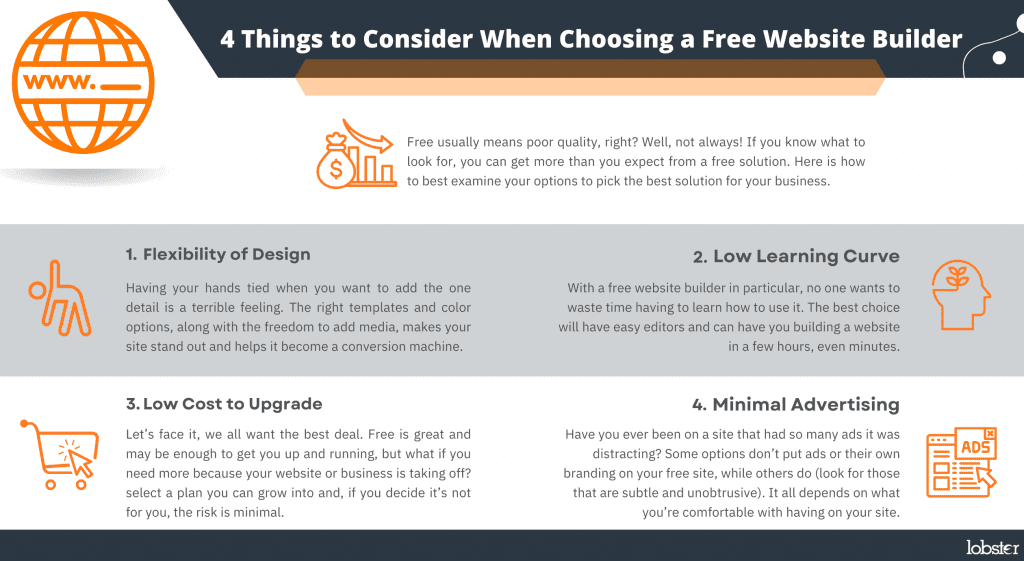
A Recap

Each ecommerce website builder is unique and suitable for a specific type of business/company.
All-in-all, Shopify is the best pick for most businesses looking for an all-rounder platform. However, we suggest you base your choice on your specific needs.
Select, set up, and start selling soon.

